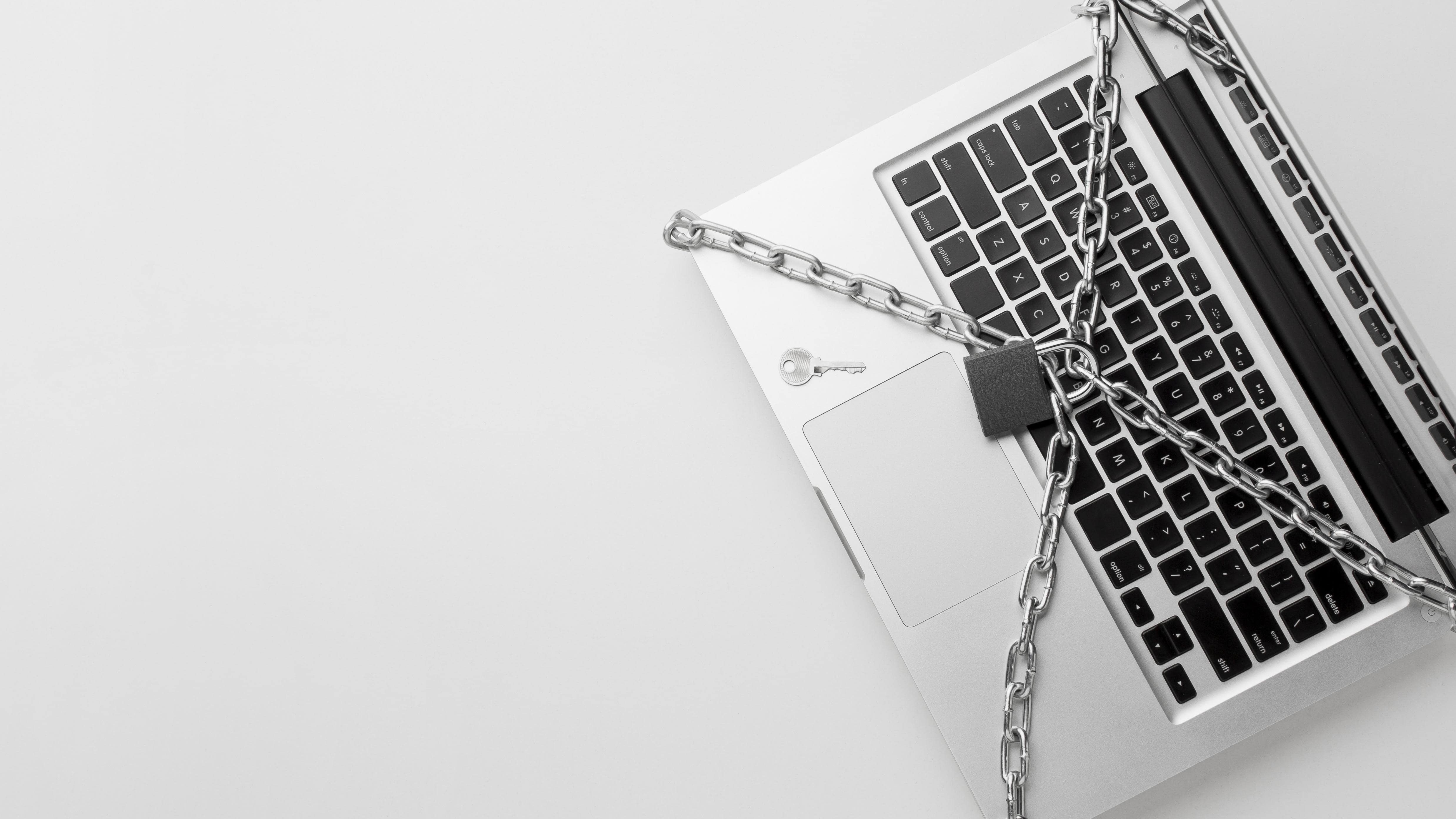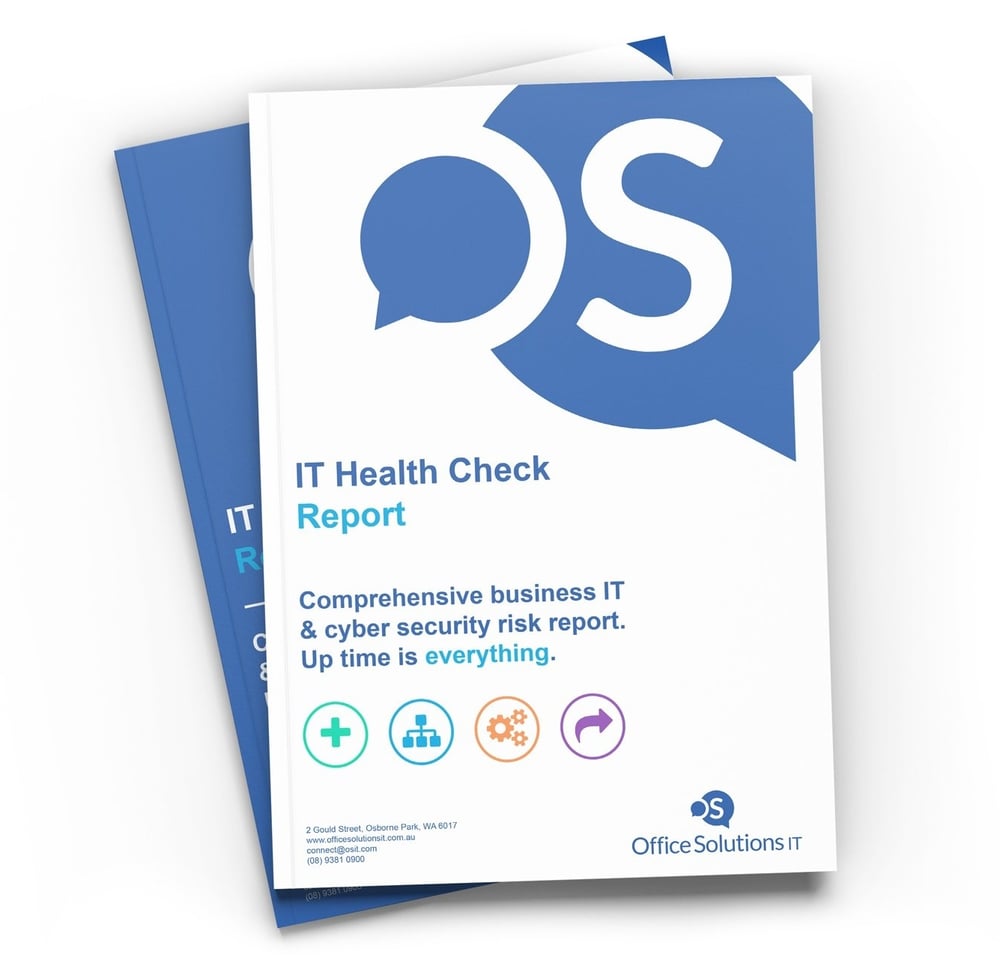Size doesn’t matter when it comes to cyber security.
Whether you’re a multinational conglomerate or a small family business, if you use digital technology in your business, then you’re at risk of cyberattacks. And to protect yourself against these attacks, you'll need a cyber security solutions provider that has your back.
Bringing your business forward doesn’t always mean more sales. Sometimes, it means securing the most essential asset – your data.
Businesses should never treat cyber security as an afterthought. With the number of cyber threats increasing by the day, you can never be too comfortable with the safety of your business data because data breaches can happen anytime, even to the most technologically prepared organisation.
As businesses rely more on technology, the more likely they are in danger of cyber threats and data risks. What you can do is see the real importance of cybersecurity in a business and discover how it can help you grow and provide better service to customers.

Reduce the risk of growing cyber security threats
Technology gave both advantages and disadvantages to businesses. Although it has helped businesses in more ways than one to reach customers and generate sales, it also made them vulnerable to data breaches and other forms of cyber-attacks.
With the shift to cloud computing due to remote and hybrid work implementations, cybercriminals now have more leverage to launch cyberattacks and damage businesses to the point of closure. That’s why cyber security is important for businesses of all sizes.
Unfortunately, not all businesses treat cyber security as a priority, and they usually see that mistake after an avoidable incident. Ensuring data safety and business continuity should always come first.
To do that, the business owner must prioritise a strategic cyber security solution that will keep their data safe and reduce the risk of cyber threats infiltrating their IT.
However, securing your business data means heavy work. It requires expert professionals to establish the necessary cyber security solution tailor-fit for your business operations and objectives.
The best option is to partner with a Managed Cyber Security Provider.
But before that, assess the current state and structure of your IT and identify any vulnerabilities you may have. Ensure that you know what you need from your cyber security solution and be open to options laid out by your provider to make the most out of your IT budget.
Financial and reputation cost
A successful data breach can cause substantial damage to your business.
Operations downtime is just one of many, but it ultimately ends with financial loss and reputation damage.
Cyber security is important to businesses, not just to protect their assets but also their customers’ private data.
Customer trust is what builds your reputation.
If customers entrust you with their personal data, they trust you enough to keep it safe from cybercriminals and to be put to good use. If you lose their trust, they’ll most likely shift to your competitors instead, ultimately costing you sales or hard-earned business deals.
Bottom line: when your reputation goes down, so will your revenue.
Stolen business data
As long as the opportunity presents itself, cybercriminals won’t hesitate to steal your data, no matter what type of business information it is. It can be employee personal information, bank and transaction records, business plans, and customer records.
If you were to fall victim to a cyberattack like ransomware, your data would be difficult to recover unless you pay the ransom – and giving into the criminals’ demand doesn’t give full assurance that you’ll even get your data at all. But that can all be avoided if you have cyber security in place, specifically a backup and recovery solution that can get you up and running right away as if there was no damage at all.
This is why cyber security is important for a business.
And in case you don’t have that, you’re putting your business at risk in the worst possible way. The lack of security can lead to problems like reputation damage and profit loss.
Recommended Reading: Is cyber security worth it for small and medium-sized businesses?
What to prepare against cyber-attacks?
We've now established why cyber security is important. Now we'll lay out the proper ways to prepare you and your employees against cyber attacks to protect your data - and ultimately, your business.
Cyber Security Training
Your staff plays an essential role in keeping your business safe from cyberattacks.
Cyber security is not just about setting up anti-virus software, implementing firewalls, and establishing backups. That’s just half of it. The rest depends on your staff’s online behaviour.
Now that most workplace interactions are done online due to remote work setups, your business is at an even greater risk of a data breach. With just one click on the wrong link, your staff’s computer or your whole network might collapse in an instant.
One way to eliminate that problem is to hold security awareness training.
Have a cyber security expert teach your staff common online scams (especially social engineering tactics) and how they could protect themselves against them. Office Solutions IT holds a cyber security awareness training every month as we make it a mission to help Australian business owners protect their data.
Sign up your team here and learn how to defend your business against cyber threats.
Password Management
If your staff is notorious for using passwords like “1234” or “admin” on all their corporate and personal accounts, your sensitive data is extremely vulnerable to a data breach.
Implement a password policy within your business that encourages your staff to use strong passwords.
Make sure they use unique passwords for every account with a combination of uppercase and lowercase letters, characters, and numbers.
If remembering passwords is too much of a hassle, you can use password managers to store and track all your account credentials.
Two-factor Authentication (2FA)
2FA is also known as the code you enter after logging in.
The 2FA acts as an extra layer of security to authenticate the login attempt. Other devices even add a third layer of authentication if your mobile device requires a number combination or Face ID (if you have an Apple device).
Many of us found this process a hassle when it first rolled out. Little did we know that this little piece of code would save our data from countless data breaches and hacking incidents.
Even if hackers get a hold of your credentials, they still won’t gain access to your accounts due to this extra layer of security.
Data Backups
Data backups should be a part of your cyber security. Businesses of all industries that rely on digital technology should have an offsite backup of their computer systems.
Disasters can happen anytime and in any form. Whether that disaster is a ransomware attack or one of your servers died, any lost data will unpleasantly affect your business.
Ensure that you have a physical and cloud backup that you synch at least once a week.
Having multiple copies of your data in two separate locations will keep them safe in case your internal servers are destroyed to breached.
Up-to-date Software and Applications
Do you remember those little pop-ups that appear on your screen telling you that there’s a new software update available?
Ignoring them long enough puts you at substantial risk of cyber threats. Software companies roll out these updates to fix security issues, patch potential vulnerabilities and strengthen the overall user experience. The sooner you authorise the update, the sooner your device will be secured.
Always keep your device’s software and applications to their latest update. You should enable automatic updates to ensure that you always get the latest versions upon their release.
Disaster Recovery Plan
What do you do in case of a data breach or a ransomware attack?
A disaster recovery plan will help you identify crucial processes that would reduce damage to your business. Take note that your disaster recovery plan should cover a wide variety of scenarios. That way, you’re prepared for the worst-case scenario where you can mitigate the effects of an attack.
Talk to your managed cyber security provider or IT team about running attack simulations from time to time to figure out the best solutions in case of a breach and patch vulnerabilities along the way.
Choose a reputable cyber security expert
If you don’t have an in-house IT team, getting help in setting up cyber security for your business is the best option to protect your digital assets.
At Office Solutions IT, we offer different business-standard cyber security services tailored to your needs and budget. Learn more about our cyber security services here.










